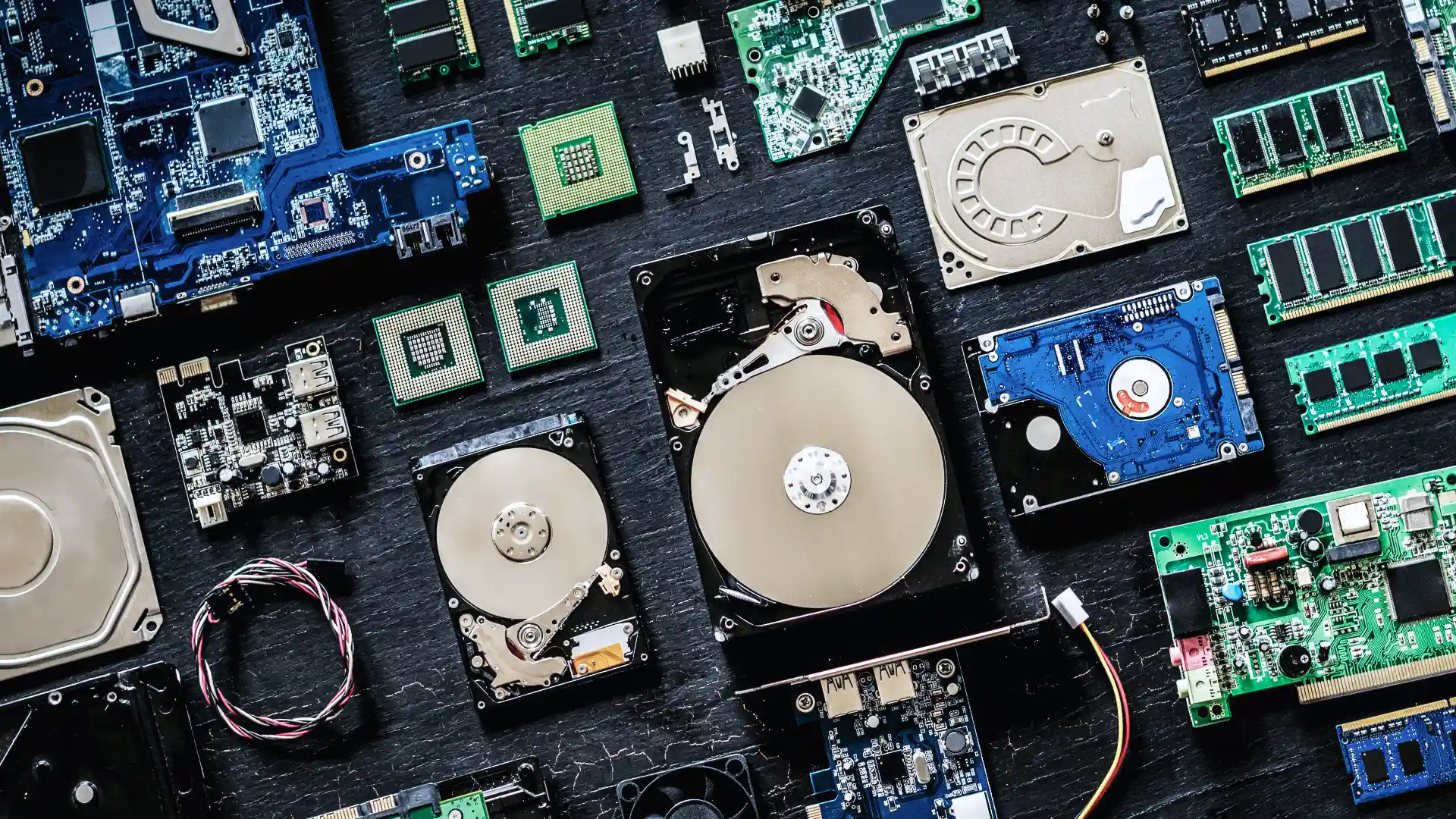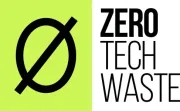Our little list of environmental goals that make a big difference
- Developing an ethical recycling programme, which is about reducing waste
- Using renewable energy and choosing providers who do the same
- Reducing carbon emissions and working towards net zero
- Conserving water and selecting suppliers that help preserve it
- Implementing practices that support a circular economy
Understanding circularity and your goals
The great news is that if you pick an ethical e-waste provider, these goals will support one another. A responsible e-waste provider will always prioritise refurbishing and repairing IT equipment. If that’s not possible, a trained technician should review the equipment to recover any working components that can be reused. Only then should a device be sent for recycling (material recovery).
This is what a circular economy looks like. The system is designed to minimise waste by keeping products in their most complete form for as long as possible. When that’s no longer viable, the same principle is applied to their components and materials. By choosing a recycling provider that works within this model, you’re actively reducing waste, lowering your carbon footprint (refurbishment uses far less carbon than recycling), and conserving water (which is heavily used in both material recovery and mining). All of this contributes to building a truly ethical recycling programme. Choosing a provider like this not only benefits the planet but also drives real progress towards broader environmental goals.
Writing and achieving your ESG goals
We believe that any ESG goal should be backed by clear, science-based targets aligned with national and global standards. They should also be specific, measurable, attainable and time bound. We’ve outlined key global and government goals and how Zero Tech Waste supports them:
Reducing waste
Global & UK targets
UN SDG 12: Substantially reduce waste generation through prevention, reduction, recycling and reuse by 2030
UK: Reduce municipal waste by 2035
UNITAR: Raise global e-waste collection and recycling rates to 60% by 2030
How we help
We promise to refurbish and repair every device wherever possible, and to extract all usable parts before anything is sent for material recovery. None of your WEEE will be sent to municipal waste. Our no-landfill policy and commitment to zero exports mean 100% of what we collect directly supports the UN, UNITAR, and UK targets.
Going beyond
The government’s policy to separate waste is helpful, but we believe it doesn’t go far enough. Small electricals, often seen as disposable, cause outsized environmental harm when sent to landfill. An estimated 471 million small electricals end up in landfill in the UK each year. Adding a dedicated small electricals bin to your workplace can make a huge difference. If you choose Zero Tech Waste you can add all small electricals you’ve collected to your next collection at no additional charge.
Renewable energy
Global & UK targets
How we help
We use renewable energy wherever possible—from our electricity suppliers to our electric vehicle fleet. Petrol or diesel vehicles are only used when a collection requires our largest vans.
Going beyond
Switch to renewable energy providers and work with suppliers who do the same.
Carbon reduction
Global & UK targets
UK: 68% reduction in greenhouse gas emissions by 2030 (from 1990 levels), net zero by 2050
Paris Agreement: 43% reduction by 2030, net zero by 2050
How we help
Operating in a circular economy already results in far lower carbon emissions than recycling or mining. On top of that, we offset our carbon emissions at a 2:1 ratio. Each collection comes with a carbon offset certificate to support your reporting and ESG tracking.
Going beyond
Buy refurbished tech and components for repair. Refurbished devices typically reduce emissions by 70%. Not everyone in a business needs brand-new equipment. Refurbishing devices before sending them to an e-waste company will not only extend the life of a device but reduce budgets and carbon emissions. Some devices like servers are created to be modular which means it is relatively easy to swap some components making them easy to upgrade or repair. Identify which devices that can be easily repaired or upgraded to ensure they are assessed for repair before being sent away.
Water conservation
UK targets
How we help
Material recovery processes use a large amount of water. By prioritising refurbishment and repair, we significantly reduce water usage. Every item diverted from material recovery helps.
Going beyond
Same as above: The same as 3, buy refurbished. Traditional mining consumes vast amounts of water, while recycled components and refurbished devices help reduce demand on natural resources.
Circular economy
Global & UK targets
UK: Committed to transitioning to a circular economy
UN SDG 12: Governments should set targets, promote circularity, and support sustainable procurement
How we help
Circularity is at the core of our business. The more organisations that choose us, the more devices are returned to use instead of discarded.
Going beyond
The same as 3, again. Repair and upgrade before you replace. Purchase refurbished devices when possible and prioritise suppliers who embrace circularity.
In summary
Making smart environmental decisions can support your ESG goals and save money when you choose the right IT recycling partner — Choose Zero Tech Waste for a trusted partner who will advise on the right choices to make towards achieving your ESG targets and who make it easy to dispose of your redundant IT assets in the most sustainable and secure way possible.
Book a collection or get in touch at contact@zerotechwaste.com
IT recycling advice for businesses
Read the latest posts offering helpful information to UK businesses on what to do with obsolete IT equipment.
-

Secure IT recycling for the finance and legal sectors
Secure IT asset disposal is critical for financial and legal firms handling sensitive data. From compliance with…
-

How IT asset recycling supports your ESG goals
Choosing an appropriate recycling provider should make achieving your ESG’s easier and help your business create a…
-

IT recycling in the education sector
Learn why IT recycling is critical in the education sector, including data protection, WEEE compliance, cost savings,…



